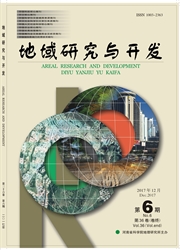

 中文摘要:
中文摘要:
为解释20世纪70年代以来的全球重构现象,西方人文地理学经历了尺度转向并开展了尺度重组的理论和实证研究。“尺度重组”的常见含义有三类:抽象层面的社会建构基础上尺度的历史演变、具体层面的国家或城市尺度重组以及政治斗争视角的行动者对尺度的运用。这一概念具备4个基本要素或特征,即尺度的社会建构和动态演进、尺度重组同政治斗争的关联性、尺度重组的路径依赖性以及尺度重组同其他空间维度的关联性。基于当前理论和实证研究,尺度重组的典型地域性管制实践可归纳为行政权限调整、行政区划调整、地方增长极的培育和跨边界区域合作。
 英文摘要:
英文摘要:
In order to interpret the global restructuring since 1970s , human geography in western countries has gone through ‘scalar turn’ and carried out a variety of theoretical and empirical studies on rescaling. The term ‘rescaling ’ is used in three ways : on a relatively abstract level, it refers to the historical evolution of scale based on its social construction; on a relatively concrete level, it refers to the rescaling of state, city and other scalar or-ganizations; in term of political struggles, it refers to the strategic deployment of scales by social actors. Based on current studies, four basic elements of 4 rescaling ^ can be distinguished as the social construction and dynamic evo-lution of scale, the political construction and deployment of scale, the path dependence of rescaling, and the unity among rescaling and other dimensions of spatial reconstruction. In practical terms, four typical territorial regulatory practices of rescaling can also be distinguished as administrative authority adjustments, administrative division ad-justments ,fostering of local growth poles, and collaborations inside cross-border regions.
 同期刊论文项目
同期刊论文项目
 同项目期刊论文
同项目期刊论文
 期刊信息
期刊信息
